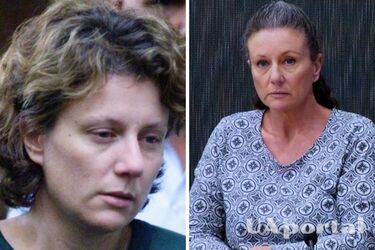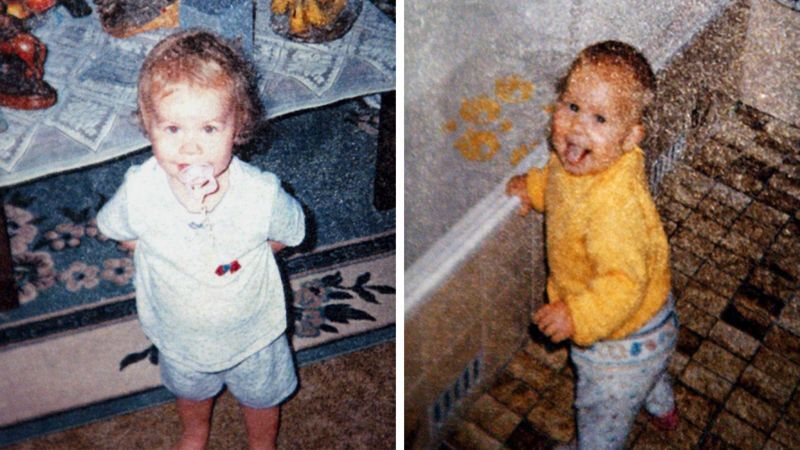Mother served 20 years for 'strangling' her 4 children: science helped prove her innocence

A woman who spent twenty years in prison on charges of murdering her four young children has been pardoned in Australia. Their deaths took place in succession over a ten-year period, and although in 2003 the court found the woman's claims of natural causes of death to be implausible, new research suggests otherwise.
Read also: Journalist tells how Pasha Mercedes knocked out her colleague's teeth with a camera in Lavra
Kathleen Folbig was known as "Australia's worst serial killer" after a jury convicted her of murdering her sons Caleb and Patrick, as well as her daughters Sarah and Laura.
The Supreme Court of New South Wales sentenced Folbig to 40 years in prison with the possibility of parole no earlier than 25 years later.
The case is now considered one of the biggest miscarriages of justice in Australia, as Folbig has always maintained her innocence.
Folbig was arrested after four of her children, aged 19 days to 19 months, died suddenly between 1989 and 1999. Prosecutors alleged that she had strangled her children, but there was no physical evidence of strangulation or signs of injury.
Folbig's conviction was based on circumstantial evidence, including entries in her diaries, where she expressed the difficulties of motherhood and blamed herself for the children's deaths.
In the subsequent course of the case, Folbig's lawyers filed several appeals and requested a new investigation in 2019. However, the results of these actions did not question the verdict, and even supported the circumstantial evidence presented at the initial trial against Folbig.
However, after a new investigation by retired judge Tom Bathurst, the prosecution admitted that their understanding of the causes of the children's deaths had changed.

Following a new investigation into the case of Kathleen Folbig, who served twenty years in prison for the murder of her four children, new findings have emerged that have changed the prosecution's view of the case.
Experts who participated in the investigation noted that Kathleen Folbig's diaries were a way for her to express her grief and survive the tragedy, as she had no support, and also noted that the strangulation of the children might not have been possible without physical marks.
However, the main reason for the change in the prosecutor's view was the findings of a group of immunologists. They found a common genetic mutation called CALM2 G114R in the Folbig daughters, Sarah and Laura, which can lead to sudden cardiac arrest.
Evidence was also found that sons Caleb and Patrick had another genetic mutation that is associated with the sudden onset of epilepsy in mice.
Professor Carola Vinuesa, who led the research team from the Australian National University, said they had noticed an unusual gene sequence in Kathleen Folbig's DNA before they tested her children's DNA samples. Their findings in November 2018 led to speculation about the possible cause of death.
The Attorney General of New South Wales, Michael Daley, said that retired judge Tom Bathurst had reached a "convincing conclusion" that there was reasonable doubt as to Folbig's guilt. As a result, the Governor of New South Wales signed a decree granting a full pardon and releasing Folbig from prison.
The decision to pardon Folbig was welcomed by Professor Vinuesa, who called it a wonderful development that could give hope to other women in similar situations. A statement from the Australian Academy of Science noted the need to reform the country's legal system to take account of advances in science.
The change in the prosecutor's view of the case and the pardoning of Folbig demonstrate the importance of objectivity and a scientific approach to the consideration of such cases.
As explained by prosecutor Michael Daly, the unconditional pardon does not overturn Folbig's sentence.
The Circuit Court of Criminal Appeals can overturn the sentence if the case is brought back to it. The process of overturning the sentence can take up to a year.
If the conviction is overturned, Folbig may file a lawsuit against the Australian government and seek millions of dollars in compensation.
After the verdict, Folbig was called "Australia's worst serial killer".
A similar precedent was set by Australian Lindy Chamberlain, who was illegally sentenced to life in prison for the murder of her infant daughter in 1982. Three years later, she was released after the court acknowledged the mistake.
Later, Chamberlain received compensation in the amount of 1.3 million Australian dollars (858 thousand US dollars).
However, Folbig's lawyers note that her case is much more complicated than Chamberlain's. Folbig has spent 20 years in prison, and her life has been shattered by the loss of her children and years of imprisonment for crimes that scientific evidence shows she did not commit.
At the prison gates, friends of Folbig met her after years of campaigning for her release. Prosecutor Daly called on journalists and the public to respect Folbig's right to privacy.
Earlier, the NABU received recordings of Judge Knyazev's conversations in the case of a record $2.7 million bribe with the help of a young agent.
If you want to get the latest news about the war and events in Ukraine, subscribe to our Telegram channel!
